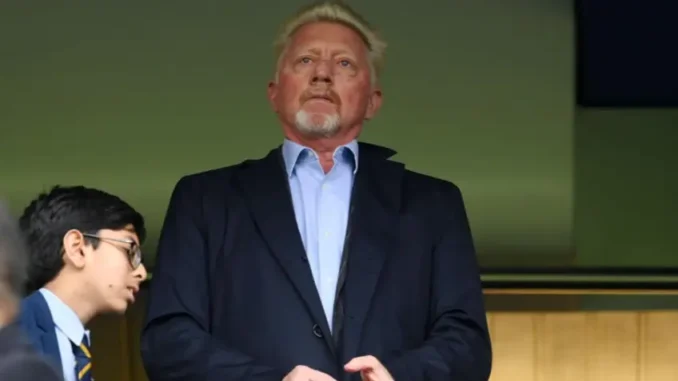
In the high-stakes world of professional tennis, where mental fortitude is as critical as physical prowess, a public spat between two German tennis titans—Boris Becker and Alexander Zverev—has captivated the sport’s community. Following Zverev’s quarterfinal exit at the 2025 French Open, Becker, a six-time Grand Slam champion, critiqued the younger star’s coaching setup and passive play, sparking a fiery response from the World No. 3. Now, with Wimbledon on the horizon starting June 30, 2025, Becker has softened his tone, insisting he’s “on his side” and wants Zverev to succeed. “I’m convinced he can become world number one. I’m convinced he can win a Grand Slam,” Becker declared, clarifying his earlier remarks during a Eurosport broadcast alongside Andrea Petkovic at the Bad Homburg Open. This olive branch aims to quell tensions, but it also underscores the high expectations for Zverev as he chases an elusive major title.
The controversy began after Zverev’s 4-6, 6-3, 6-2, 6-4 loss to Novak Djokovic at Roland Garros, a defeat that halted his quest for a maiden Grand Slam. Becker, speaking on Eurosport’s Matchball Becker, pointed to Zverev’s reliance on his father, Alexander Sr., and brother, Mischa, as coaches, suggesting a fresh perspective could unlock his potential. “At some point, you need new noises and a new environment,” Becker said, drawing parallels to Rafael Nadal’s evolving coaching team. He criticized Zverev’s “passive” approach against Djokovic, arguing that against elite players like Djokovic, Jannik Sinner, and Carlos Alcaraz, “you have to be the one who acts more aggressively and believes in winning.” The remarks stung Zverev, who fired back at a Stuttgart Open press conference, saying, “When things are going badly for me, everyone else is very, very clever. Unfortunately, Boris is one of them.” He expressed frustration over the shift in their previously “great relationship,” noting, “I talked to Boris a lot, had a lot of contact with him before he made those statements. I don’t know why it all has to be like this now.”
Zverev’s response wasn’t just defensive; it was a declaration of self-belief. The 28-year-old, who has reached three Grand Slam finals (2020 US Open, 2024 French Open, 2025 Australian Open), emphasized his credentials: “I came back from a serious injury, played in two Grand Slam finals, and was number two in the world. I still see myself as a candidate to compete against the guys at the top.” His respect for Becker remained evident, as he added, “I still have enormous respect for him. He is an absolute legend, not only in sport, but in Germany in general, and also worldwide. I will always listen to what he has to say. But I don’t always have to agree.” Zverev’s defiance extended to other critics, like German Billie Jean King Cup captain Barbara Rittner, whose comments he dismissed outright: “I don’t know why she suddenly has so much to say about my tennis career. To be honest, I don’t take her opinion seriously.”
Becker’s latest comments aim to refocus the narrative on Zverev’s potential rather than their disagreement. “I’m on his side. I want him to win,” he reiterated, framing his critique as “suggestions for improvement or hints.” He sees Zverev, with 24 ATP Tour titles, seven Masters 1000 trophies, and a 2020 Olympic gold medal, as “by far the best German” player, capable of surpassing his current No. 3 ranking. Becker’s belief in Zverev’s ability to claim a major is shared by many, despite his struggles on grass, where his best Wimbledon result is three fourth-round finishes. Zverev’s recent grass-court campaign showed promise, with a Stuttgart final (lost to Taylor Fritz) and a Halle semifinal (lost to Daniil Medvedev), signaling he’s adapting to the surface.
The feud has sparked broader discussions about coaching dynamics and the pressure on Zverev, whom Andy Roddick called “the best player ever that hasn’t won a Major,” citing his Hall of Fame-worthy resume. Social media buzz reflects the tension, with fans debating whether Becker’s critique was warranted or overstepped. As the third seed at Wimbledon, Zverev faces a golden opportunity to silence doubters, but the grass courts of SW19 have historically been his toughest challenge. Becker’s softened stance, coupled with Zverev’s resolve, sets the stage for a compelling narrative: can the German star channel this drama into a breakthrough? “It’s up to him to develop further,” Becker said, leaving the ball in Zverev’s court as the tennis world watches.
Leave a Reply